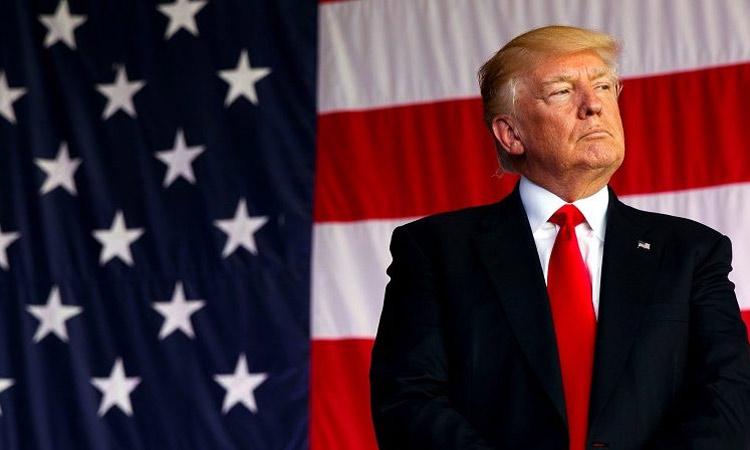Transforming American Governance: The Expansive Influence of Donald Trump on Federal Agencies and Foreign Policy
Comprehensive Overhaul of Federal Agencies Marks a Paradigm Shift in U.S. Administration
Under the leadership of former President Donald Trump, federal institutions have experienced a profound reconfiguration that extends far beyond routine bureaucratic adjustments.This strategic realignment aims to centralize executive authority by redefining agency missions, restructuring internal hierarchies, and reprioritizing policy objectives. Departments such as the Environmental Protection Agency (EPA), the Department of Energy, and the State Department have witnessed meaningful staff reductions and regulatory rollbacks, aligning their operations more closely with the administration’s agenda.
Key transformations include:
- Shift in policy focus: Emphasizing economic expansion and deregulation often at the expense of environmental safeguards and public health standards.
- Personnel changes: Replacement of career bureaucrats with politically loyal appointees, raising concerns about the erosion of institutional independence.
- Budget reallocations: Increased funding for defense and border security initiatives, coupled with cuts to climate change programs and renewable energy investments.
| Agency | Primary Changes | Resulting Impact |
|---|---|---|
| Environmental Protection Agency (EPA) | Staff downsizing and deregulation | Relaxed environmental enforcement |
| State Department | Centralization of policy decisions | More streamlined but less multilateral diplomacy |
| Department of Energy | Prioritization of fossil fuel development | Reduced support for clean energy initiatives |
Reorienting Foreign Policy: Challenges to Established Global Partnerships
The administration’s departure from conventional diplomatic practices has unsettled longstanding alliances, prompting allies to reconsider their strategic alignments. This new approach favors transactional, bilateral agreements over multilateral cooperation, often sidelining international organizations and frameworks. European and Pacific partners have expressed apprehension about the unpredictability of U.S. commitments, especially regarding collective defense and economic collaboration. This recalibration has led NATO members and other allies to reevaluate their security and trade priorities in light of shifting U.S. policies.
Notable areas of impact include:
- Decreased financial contributions to global aid and multilateral programs.
- Renegotiation of trade deals with a focus on American economic interests.
- Withdrawal from or reduced engagement in international climate accords.
- Stricter immigration policies affecting diplomatic relations.
| Alliance/Agreement | Previous Emphasis | Current Dynamics |
|---|---|---|
| NATO | Collective defense and shared military readiness | Heightened tensions and demands for increased burden sharing |
| USMCA (formerly NAFTA) | Multilateral trade facilitation | Focus on bilateral negotiations prioritizing U.S. interests |
| Paris Climate Agreement | Commitment to global emission reductions | Withdrawal followed by delayed efforts to rejoin |
Concerns Over Executive Overreach and the Erosion of Congressional Oversight
Political analysts and constitutional experts warn that bypassing Congress in critical policy decisions undermines the essential system of checks and balances that sustains American democracy. This trend risks concentrating excessive power within the executive branch, reducing transparency and accountability. The absence of thorough legislative debate may lead to hasty policymaking, lacking the diverse perspectives necessary for addressing complex domestic and international challenges.
Highlighted risks include:
- Diminished accountability: Reduced oversight mechanisms increase the likelihood of unchecked executive actions.
- Policy volatility: Unilateral decisions are more susceptible to abrupt reversals, damaging trust at home and abroad.
- Public disengagement: Citizens may feel alienated as their elected representatives are marginalized, weakening democratic participation.
| Risk Factor | Potential Consequence |
|---|---|
| Weakening of Legislative Oversight | Expansion of unchecked executive authority |
| Frequent Policy Reversals | Uncertainty in international relations |
| Decline in Civic Engagement | Lower voter turnout and public trust |
Restoring Democratic Foundations: Policy Proposals to Reinforce Checks and Balances
In light of these sweeping changes, lawmakers and governance experts advocate for reforms aimed at reestablishing the balance of power among the branches of government. These recommendations focus on preventing unilateral executive actions and promoting transparency and accountability. Key proposals include reinstating the Senate’s confirmation authority for key appointments, bolstering congressional oversight committees, and enhancing disclosure requirements for foreign policy decisions.
Core strategies emphasized by reform advocates:
- Reinforcing judicial review to effectively challenge executive overreach.
- Empowering independent watchdog agencies to oversee administrative conduct.
- Establishing legal limits on the scope and frequency of executive orders.
- Mandating comprehensive reporting to Congress on international engagements.
| Proposed Reform | Expected Outcome |
|---|---|
| Reinstate Senate Confirmation | Ensure balanced appointment powers |
| Enhance Congressional Oversight | Increase executive accountability |
| Limit Executive Orders | Reduce unilateral policymaking |
| Improve Transparency | Inform public and legislative bodies |
Conclusion: Navigating the Future of American Governance and Global Leadership
As the Trump administration’s rapid and extensive reforms continue to reshape the U.S. government and its foreign policy, the long-term effects remain uncertain. The apparent sidelining of traditional checks and balances raises critical questions about the future stability of American democracy and its role on the world stage. Moving forward, policymakers, analysts, and citizens will closely monitor how these transformations influence both domestic governance and international relations in an increasingly complex geopolitical surroundings.




